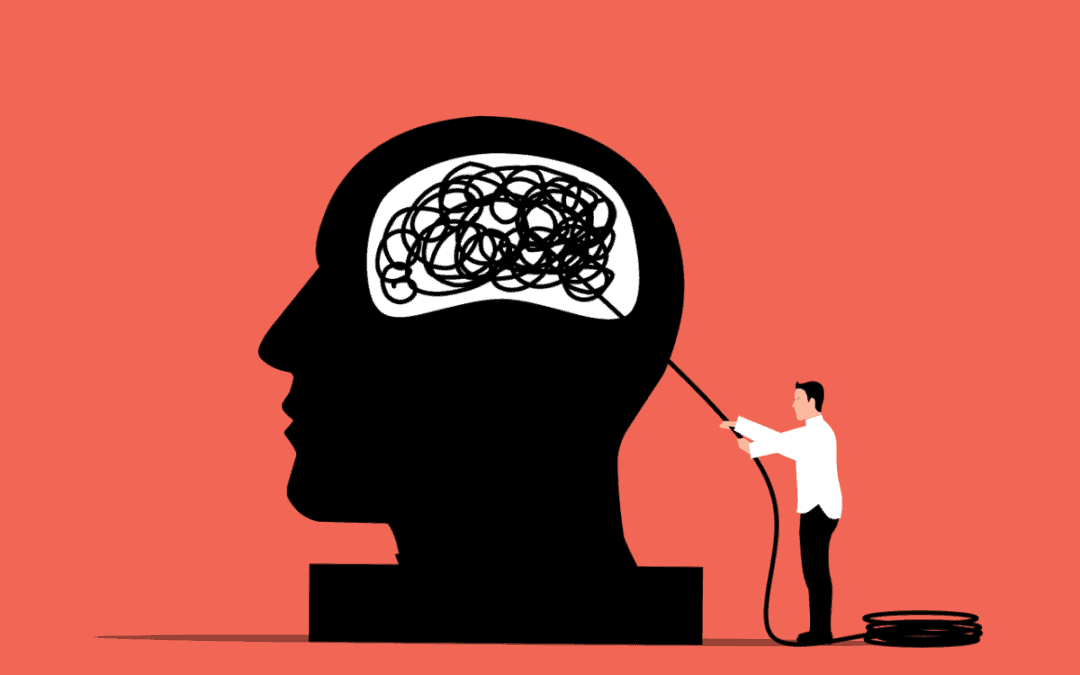EMDR (Eye Movement Desensitization and Reprocessing) is a therapeutic and transforming journey that assists you in reconnecting with the completeness and wholeness of who you are.
It removes the toxic imprint and reveals the core of who you are, and also allows you to live a life of emotional freedom and authenticity in your relationships, creative expressions, and feelings.
EMDR is an effective tool. A qualified and experienced trauma therapist can assist you in ensuring that you have as few unpleasant EMDR side effects as possible. However, there are times when the treatment does not help and can be a bit more challenging.
Contents
How Does EMDR Work?
Individuals begin by identifying a visual picture associated with the traumatic event. Furthermore, they concentrate on poor self-perception, uncomfortable feelings, and body sensations associated with the belief and experience.
A positive belief is also identified by the client. The therapist then encourages the client to concentrate on the picture, negative thinking, and physical sensations while undergoing EMDR processing.
Your therapist will coach you through sets of side-to-side eye motions as you concentrate on the painful experience. Sounds or taps may be used instead of lights, depending on your therapist’s approach.
You can safely process the memory by combining attention to the recollection with eye movements or noises. It also affects how your brain remembers memories.
Your EMDR therapist will assist you in identifying materials that are most effective for you. Your trauma therapist may take several more sessions for those who have undergone complex trauma and dissociative symptoms.
If you or someone you care about has struggled with addiction and has failed to recover in the past, EMDR may be beneficial.
Who is EMDR for?
EMDR therapy is increasingly becoming recognized as a valuable therapeutic option for those who have experienced traumatic situations.
Moreover, EMDR can be used to treat a variety of traumas, including sexual assault, child abuse, car accidents, violent crime, and other traumatic events.
Some people are hesitant to use EMDR due to the emotional dysregulation that might occur after a session. This might include an inability to calm down or regulate one’s emotions.
During the EMDR treatment process, finding healthy strategies to cope with stress is important. The therapist will want to make sure that their client has enough support to get them through the therapy.
When delivered by a competent mental health practitioner, EMDR is not harmful. EMDR is one of the most well-studied trauma therapies. Your EMDR therapist will be able to guide you through the procedure and answer any questions you may have.
Other than trauma, EMDR is also becoming popular for treating anxiety disorders, depression, and addictions.
Why is EMDR Not Working for You?
Even though EMDR has a high success rate, all treatments include some drawbacks. Following are the possible reasons why EMDR is not working for you.
You’re Too Young
Dr. Van Der Kolk believes that EMDR does not function effectively in children. Due to the mental and biological changes that occur in abused children.
Furthermore, an abused child’s life might be filled with a number of triggers. The child may not be able to differentiate their trauma into an isolated incident from which they can move on.
You’re Not Comfortable Enough
It might be uncomfortable and difficult to meet and speak with someone you do not know. Even when the nature of the therapy is to provide comfort, it is not always easy to reveal your intimate thoughts and feelings.
When a person feels comfortable and ready to address the things that have harmed them, EMDR produces the best outcomes. If you find it difficult to open up and suffer from social anxiety you can opt for self-administered virtual EMDR.
Self-administering EMDR offers the client more control. Even if they are following the tool’s or video guide’s instructions, they are ultimately in charge of their imagery and activities. Using a self-administered virtual EMDR tool to work on your trauma can enable you to do so without triggering your social anxiety.
You Have Complex Issues
Another reason it could not work is if you have a complicated mental health issue that affects your ability to focus and process information. Dissociative disorders, personality disorders, and the degree of trauma complexity can all affect how successfully EMDR clears trauma memories.
Elements of A Successful EMDR Therapy
The EMDR procedure might be frightening since it can bring up traumatic and unpleasant memories. The procedure, however, does not begin until you are ready.
Prior to beginning the EMDR procedures, your therapist will teach you a number of relaxation and coping techniques. Individuals can count on these safety precautions which you built with the support of your therapist.
The procedure may cause some emotional distress. Be assured that you will not be thrown into a sea of emotional ups and downs unless you and your therapist have decided it is the right moment.
The effectiveness of the EMDR sessions is primarily determined by the individual’s willingness to be honest and vulnerable with their therapist. The therapist will be able to help you heal faster if you reveal the hidden past traumas.
It is also vital to remember that you are in total control of the procedure at all times. Trusting your therapist and opening yourself to them will speed up the healing process.
Keep in mind that the EMDR process is intended to help you heal from previous traumatic events, not worsen them.
Final Verdict
It is not as simple as adopting a new perspective to overcome traumatic or painful events. Fear, uncertainty, guilt, and self-criticism are all powerful emotions.
You become buried in worry, depression, relationship troubles, social anxiety, and creative blocks when you try to push past your feelings.
This treatment can assist mental health practitioners in determining what negative events are affecting a person’s psychological and physical well-being so that psychological and bodily healing can take place.
It is vital that EMDR sessions take place in a secure setting, with the help of a qualified therapist and the use of relaxation techniques.
When used properly, EMDR can help with complete information processing, new learning, emotional distress reduction, and the creation of new insights.







I have tried emdr and was instructed to imagine myself as an adult taking my childhood to a safe and fun place to comfort and love her.
It did not work for me.